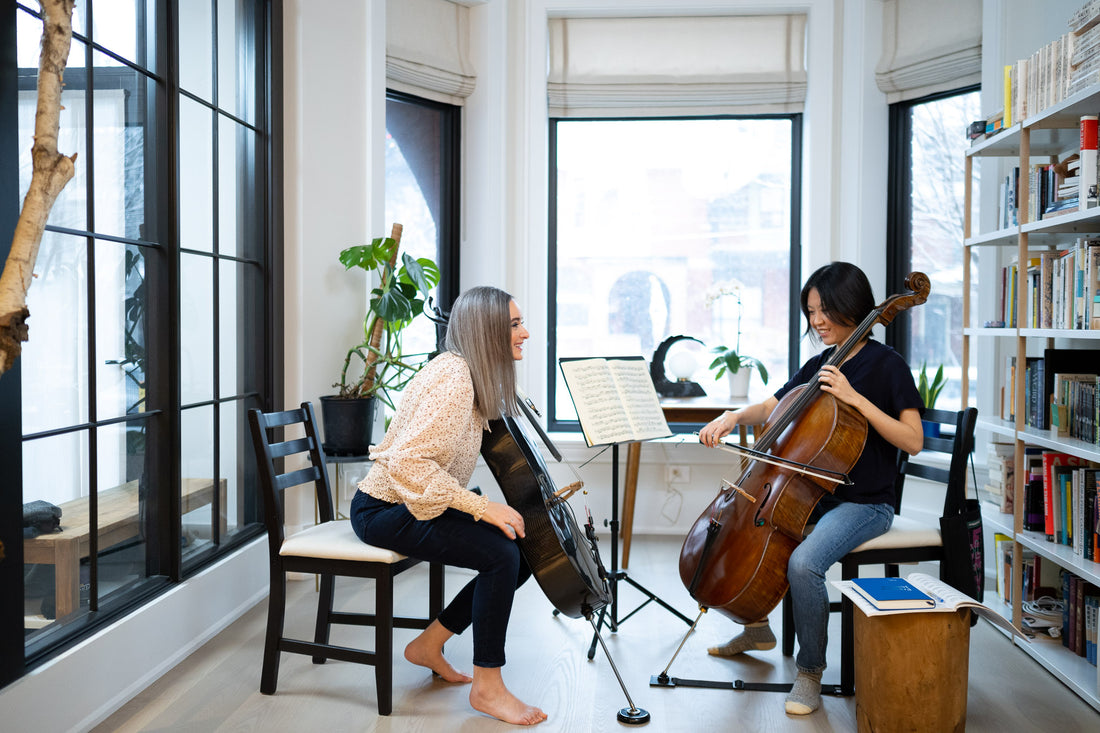The week of Toronto Summer Music Festival's community program has wrapped up. It’s my first time participating and seriously playing chamber music, and with all the “first-times” comes with lots of learnings.
Learning from mentors who are exceptional musicians is one of the most valuable experience for me. Since feedback is a critical element of deliberate practice, it’s no question that the two 2-hour sessions everyday with timely feedback loop is a main reason everyone made significant improvements in just 5 days.
While training with the mentors has come to an end, the practice must go on. Wouldn’t it be great if I can apply some of the tactics I’ve learnt from the mentors to my own practice going forward? As I began to summarize my learning, it also occurred to me that none of these tactics were new to me—they were the same tactics my teacher used in our lessons. For those who don’t currently have a teacher or take lessons regularly, these might be helpful things to try in your own practice.
1. If you can’t play the rhythm well, sing it first
During the rehearsal, we got lost quite often when everyone had a different rhythm that created a complex rhythm structure. And for me, not having a strong pulse only made it worse. In these situations, our mentor would ask us to put our bows down and sing the rhythm together. Since the challenge was rhythm related, singing took away the complexity of coordinating our hands altogether so we can just focus on the rhythm part. And once we could sync well with our signing — meaning the rhythm has been drilled into our heads, we took up the bows again and the playing got much better.
The principle behind this exercise is to take away extra elements to focus on the core challenge. Our brain is not very good at multitasking, and the more we can isolate a problem to focus on, the more effectively we can solve it.
2. Repeat success until it’s consistent
It’s very common during practice for us to move on as soon as we played a challenging part correctly once after a few failed attempts. But we would not know if this was a result of luck or us actually having the ability to play well. In rehearsal, our mentors would ask us to play the part a few times after we got it right, just so we have it in our ears and bodies — in other words, when this becomes an acquired skill.
Note that this doesn’t mean we should only repeat things we’re comfortable with, instead, this is the process of getting comfortable with something that was previously uncomfortable.
3. Not just hearing, really listen
We all know there’s a difference between “hearing” and “listening”. Hearing is passive. Sound comes to us whether we want it or not, and we can choose to tune in or block it out. Listening, however, is active and intentional. When playing chamber music, being able to listen is a crucial skill one can develop during rehearsal. It’s something we can practice by ourselves too. This is an area that I would really like to develop. Whether it’s tuning against an open string or a drone, learning to listen will go a long way.
4. Learn to feel the music
Admittedly I wasn’t sure what to make of it in the beginning. It’s not explicitly actionable. How exactly does one feel? After giving it a lot of thought and attempts during the week of rehearsal, having hearing this feedback many times, I came to realize it is trying to encapsulate a number of bodily sensations and mental models until they are no longer separate things, and instead they’re one.
For example, when we tuned a chord, we were asked to “feel” while tuning. It combines knowing what the right intonation sounds like, listening and finding to the right pitches, and feeling the “right” (for a lack of a better word) vibration in the body that’s connected with the instrument. While I don’t know if one can learn to feel without learning the individual elements but my experience taught me that it definitely helps to build it with more concrete and actionable techniques.
5. An invitation to explore
Many aspects of music are subjective, especially when it comes to musical expressions. While a high level of freedom in expression needs to be built on a solid foundation of technical skills, playing music is ultimately a creative act.
When I first started learning piano as a child, I was never encouraged to explore different ways to express music, instead, it was very black-and-white orders to “do this, don’t do that”. It’s a bit intimidating but also refreshing when the mentors invited me to try different things that resulted in a satisfying musical expression.
In my cello lessons, my teacher would do something similar for me to find a way of playing that works for me recognizing that different body types or hand sizes has significant impact on how we engage with the instruments to make a good sound. Indeed, trying different things—whether it's finding the right expression or what works for you—is an invitation rather than an order. In our own practices, we can try inviting ourselves to explore and experiment.
---
Personally, I've gotten a lot from regular in-person (and online) lessons. Amber and I listed a few reasons why having lessons is important for a musician. But if for whatever reason you choose not to have lessons now, hope these learnings can help you make progress in your own practice.

